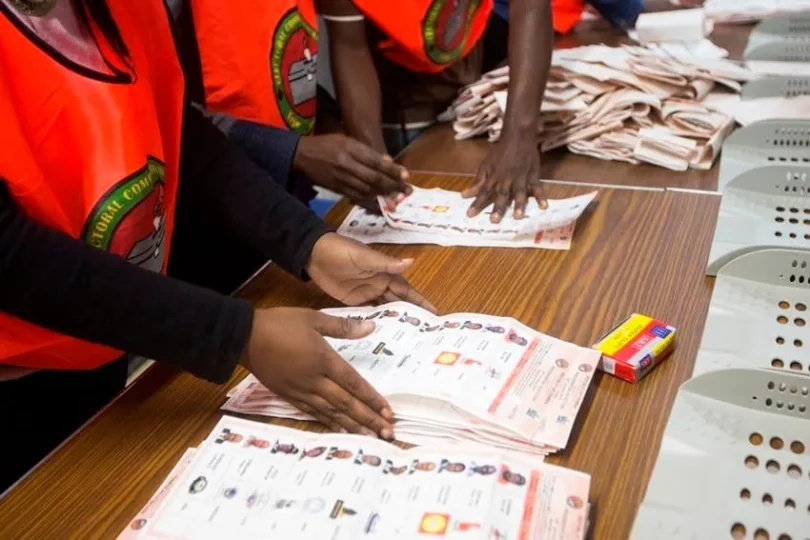Election Commission of India: Powers, Structure, Responsibilities & Why It Matters in the World’s Largest Democracy
The Election Commission of India (ECI) is the constitutionally empowered body responsible for administering elections across the nation. Since its establishment on 25 January 1950, the Commission has acted as the guardian of India’s democratic process, ensuring that elections are conducted freely, fairly, and without political interference. As the world’s largest democracy, India relies heavily on the independence and integrity of the ECI.
SIMILAR: Ndimande Brothers Extradited to South Africa in High‑Profile AKA Murder Case
Table of Contents
Constitutional Authority Under Article 324
The foundation of the ECI’s power lies in Article 324 of the Indian Constitution, which grants it full control over the entire electoral process. This includes supervision, direction, and management of elections for the Lok Sabha, Rajya Sabha, State Assemblies, as well as the President and Vice-President of India.
This constitutional backing ensures that the ECI operates independently from government influence, strengthening electoral credibility.
Composition and Organisational Structure
The Election Commission operates as a multi-member body consisting of:
- A Chief Election Commissioner (CEC)
- Two Election Commissioners
Together, they form a collegium that makes decisions collectively, promoting neutrality and transparency. The headquarters—Nirvachan Sadan in New Delhi—coordinates a nationwide network of state-level election authorities, district officers, and polling staff.
Key Responsibilities of the Election Commission
The ECI’s responsibilities extend across every stage of the electoral process. These include:
Updating Electoral Rolls
The Commission prepares and maintains up-to-date voter lists, ensuring that eligible citizens are included and duplicate or deceased voters are removed. This process also includes issuing Electors Photo Identity Cards (EPIC).
Conducting Free and Fair Elections
From announcing the polling schedule to supervising ballot counting, the ECI orchestrates elections with precision. Its planning covers logistics, security, transportation of voting machines, and polling staff deployment.
Enforcing the Model Code of Conduct (MCC)
Once election dates are announced, the MCC comes into effect. The Commission ensures political parties and candidates comply with ethical campaigning standards while preventing misuse of government resources, hate speech, and illegal funding.
Monitoring Election Expenditure
To maintain fairness, the ECI tracks candidate spending, preventing overspending and ensuring compliance with legal limits.
Technological Innovations: EVMs and VVPAT
One of the biggest transformations in Indian elections has been the introduction of Electronic Voting Machines (EVMs) and VVPAT (Voter Verifiable Paper Audit Trail) systems. These innovations make elections faster, more transparent, and more accessible, especially in remote regions.
VVPAT slips provide an additional layer of verification, allowing voters to confirm their choices instantly.
Recent Reforms and Digital Advancements
The ECI continues to modernize the electoral system. A significant recent initiative is the Special Intensive Revision (SIR) to clean and update voter lists across 12 states. The Commission is also exploring digital data integration—such as linking civil death records—to automatically update voter lists and prevent inaccuracies. These steps reflect the ECI’s commitment to a more efficient and transparent electoral framework.
Challenges Faced by the Election Commission
Despite its robust structure, the ECI faces several challenges:
Massive Scale of Elections
With over 900 million eligible voters, the ECI must coordinate a network of polling stations across diverse terrains, from Himalayan regions to remote villages.
Managing Political Pressure
Maintaining neutrality and independence amid rising political polarization remains a constant challenge, requiring strong institutional safeguards.
Combatting Fake News & Misinformation
Digital misinformation poses a threat to voter awareness and integrity, demanding better communication and rapid response mechanisms.
Ensuring Accessibility
The Commission continually works to include marginalized communities, people with disabilities, and remote populations in the electoral process.
Why the Election Commission of India Matters
The ECI is central to the functioning of India’s democracy. Its role goes beyond managing elections—it upholds voter trust, enforces accountability, and ensures that governments are chosen legitimately by the people.
Without an impartial and empowered Election Commission, the democratic foundation of India would be severely compromised.
Conclusion
The Election Commission of India remains one of the world’s most respected election bodies, admired for its scale, neutrality, and efficiency. As India evolves, the ECI continues to adapt, innovate, and strengthen the electoral process, ensuring that every vote counts and every election reflects the true voice of the people.
Check more E NEWS articles;
- Marco Hall Net Worth 2023
- How do you show true love?
- Aaron Krause Net Worth 2023
- Richard Hilton Net Worth 2023
- Michael Rapaport Net Worth 2023
- Ratiba ya Mitihani ya Darasa la Nne 2025
- Matokeo ya kidato cha sita 2025 Haya Hapa
- Ratiba ya Mitihani ya Kidato cha Pili (CSEE) 2025
- Ratiba ya Mitihani ya Kidato cha Nne (CSEE) 2025





